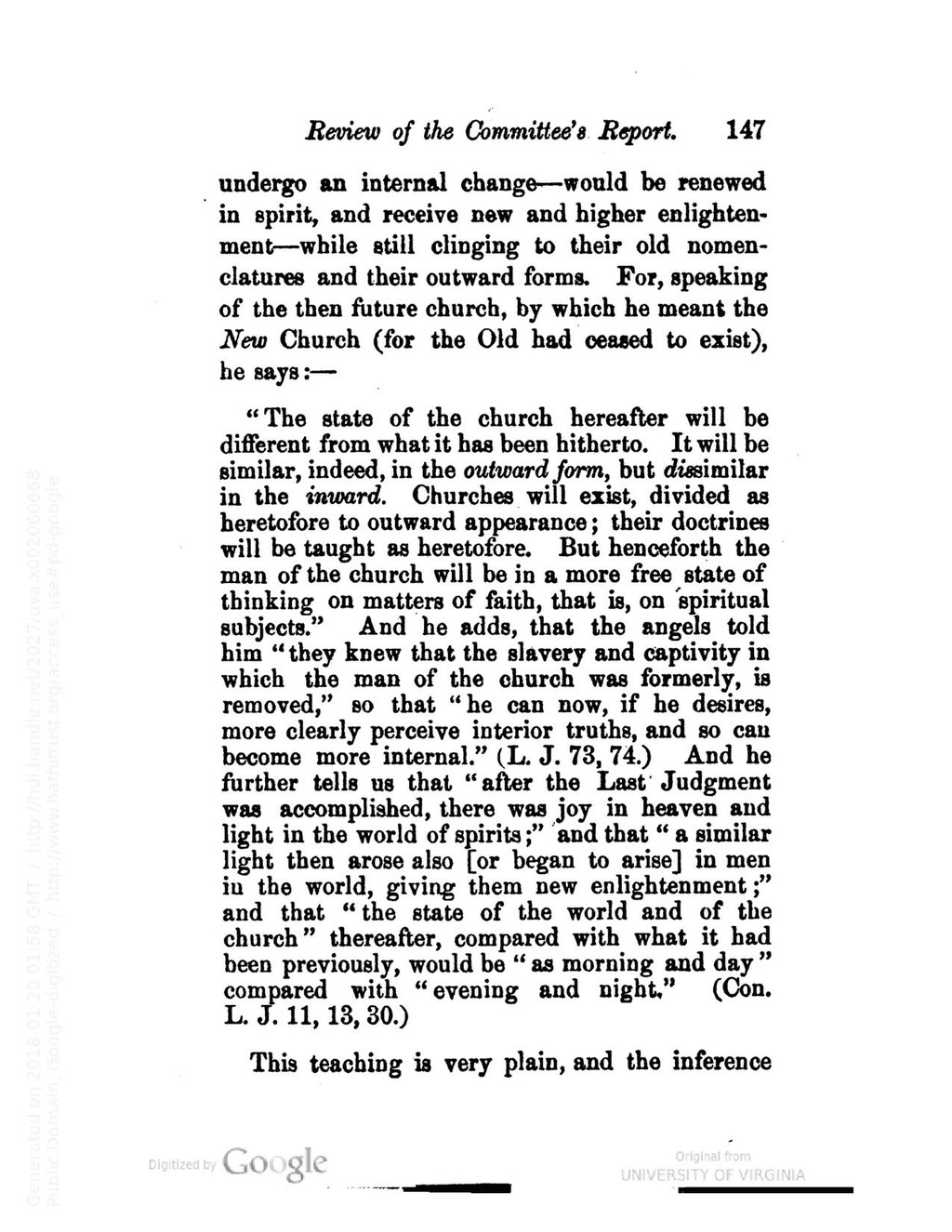undergo an internal change—would be renewed in spirit, and receive new and higher enlightenment—while still clinging to their old nomenclatures and their outward forms. For, speaking of the then future church, by which he meant the New Church (for the Old had ceased to exist), he says:—
"The state of the church hereafter will be different from what it has been hitherto. It will be similar, indeed, in the outward form, but dissimilar in the inward. Churches will exist, divided as heretofore to outward appearance; their doctrines will be taught as heretofore. But henceforth the man of the church will be in a more free state of thinking on matters of faith, that is, on spiritual subjects." And he adds, that the angels told him "they knew that the slavery and captivity in which the man of the church was formerly, is removed," so that "he can now, if he desires, more clearly perceive interior truths, and so can become more internal." (L. J. 73, 74.) And he further tells us that "after the Last Judgment was accomplished, there was joy in heaven and light in the world of spirits;" and that "a similar light then arose also [or began to arise] in men in the world, giving them new enlightenment;" and that "the state of the world and of the church" thereafter, compared with what it had been previously, would be "as morning and day" compared with "evening and night." (Con. L. J. 11, 13, 30.)
This teaching is very plain, and the inference
